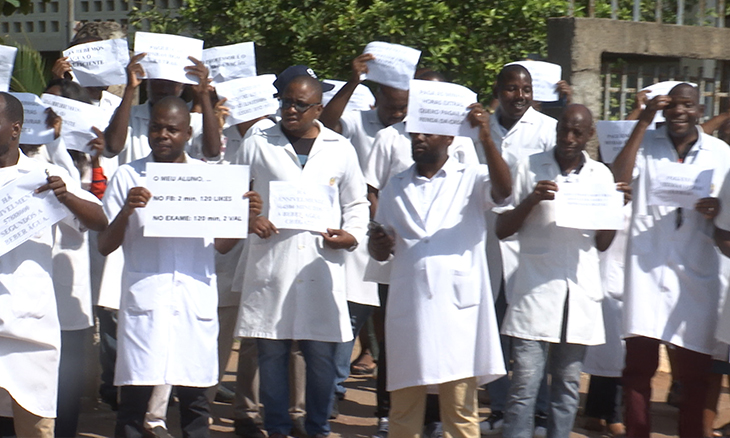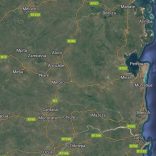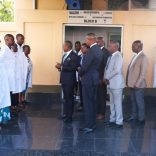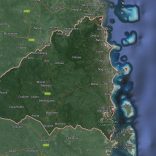Mozambique: Terrorists burn vehicles after blocking road - AIM
Mozambique: Schoolteachers to boycott special exams until overtime arrears paid

FILE - For illustration purposes only. [File photo: O País]
Schoolteachers in Mozambique have threatened to boycott “special exams” scheduled for students who were unable to take national exams in December in the face of stoppages and protests in the wake of the 9 October general elections, until the government pays overtime arrears.
“First they have to pay all the overtime arrears, then we’ll control the special exams; otherwise they’ll say we’re boycotting the exams, while we’re demanding our rights,” said Marcos Mulima, spokesman for the National Teachers” Association (Anapro), speaking to Lusa about the “special exams” for 10th and 12th grade students that are scheduled to take place from 20 to 24 January.
Among other things, the teachers are complaining about delays in the payment of overtime for two months and 18 days of 2022, all of 2023 and all of 2024, as well as a “better framework” in the Single Salary Table (TSU) for the profession.
The Anapro spokesman said that, in addition to the special exams, the start of the school year for general and technical and professional education is also “compromised” by the situation, and threatened a general paralysis of activities until the government settles the debts.
“They are aware that they must pay by the twentieth of January or there will be strikes that will affect exams and the opening of the school year,” Mulima said. “There will always be pressure, threats and harassment, but we won’t stop until we get paid.”
He pointed out that the government has so far failed to pay all the overtime owed since 2022.
Mozambique’s Ministry of Education and Human Development (MINEDH) is going to subject all 10th and 12th grade students who failed their national exams to “special exams” in January.
“Registered 10th and 12th grade students who missed the 1st and 2nd call final exams and external 12th grade candidates who did not take the external candidate exams may apply for these exams,” reads a MINEDH notice to which Lusa had access on 31 December.
The government’s decision came in a context in which Mozambique is wracked by post-election tensions that have prevented exams from being held in some schools, coupled with the paralysis of activities in at least 32 schools due to action by teachers, who prevented final secondary school exams from being held at the beginning of December, demanding payment for overtime.
On 23 December, Mozambique’s Constitutional Council proclaimed Daniel Chapo, the candidate supported by the governing Front for the Liberation of Mozambique (Frelimo) party, winner of the election for president, with 65.17% of the votes, thus succeeding the incumbent Filipe Nyusi, also of Frelimo, in office – as well as the victory of the party in legislative elections, retaining its parliamentary majority.
The council’s announcement sparked further turmoil across the country, with supporters of Venâncio Mondlane – the second-placed candidate, according to the Constitutional Council, with 24% of the vote – coming out onto the streets, setting up barricades, looting and clashing with police, who have been firing shots in an attempt to demobilise them.
Since 21 October, when the challenge to the process surrounding the 9 October general elections began, the Plataforma Eleitoral Decide elections monitoring group has recorded the deaths of 278 people, as well as 586 people being injured by gunfire, and 11 missing.
There have also been 4,201 detentions since the start of the post-election protests, 167 of them since 23 December.













Leave a Reply
Be the First to Comment!
You must be logged in to post a comment.
You must be logged in to post a comment.